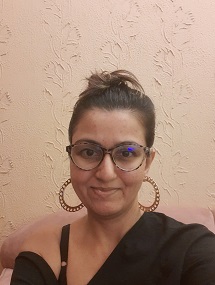 It’s as if I’m researching the ceiling, Indi mulls. She’s lying stationary, observing the cracks and patchy paint on the oddly constructed ceiling she’s come to know so well these past months. A longitudinal section of cement, about a foot long, hangs down its centre, as if the architect had wanted to divide the room further but changed his mind. Had it been completed, had it reached all the way down to the floor, the room would have been divided down the middle, making equal halves.
It’s as if I’m researching the ceiling, Indi mulls. She’s lying stationary, observing the cracks and patchy paint on the oddly constructed ceiling she’s come to know so well these past months. A longitudinal section of cement, about a foot long, hangs down its centre, as if the architect had wanted to divide the room further but changed his mind. Had it been completed, had it reached all the way down to the floor, the room would have been divided down the middle, making equal halves.
Indi lies under the stub-like block, on a narrow bed in the centre of the room. The wall to her left has a short steel cupboard by it, while the wall to the right has a window with blinds permanently rolled back. She sits up and cranes her neck to look through. From the dappled space between leaves and branches, she can see the street slowly waking up: a man on a bicycle ambles past, ringing his bell; an elderly woman walks her dog; shop shutters are being unlocked and creakily pushed upwards.
It’s still thrilling to think of: I’m in Mumbai, living in its most historical precinct. The rental may be tiny, the bath miniscule, the kitchen crammed, but it’s so exciting! Even sleepy mornings have an ebullience about them. And the evenings: always electric. Literally. Lights stud everything – shopfronts, buildings, streets. I must make the most of my last day here.
Indi hasn’t missed the quiet of her village or its stagnant weekends. In fact, she finds it antithetical when compared to the city, even though it’s just a ferry ride away. Her parents knew she felt this way about city life. They knew their daughter was ripe for at least one big adventure.
Indi pulls her handbag towards her from the foot of the bed, and roots through it, carefully drawing out from one of its pockets a dog-eared piece of paper. She unfolds it for the umpteenth time.
“Darling Idli,” her mother’s curly handwriting reads, “Be fearless. Be free. Love, Amma and Papa.” With the note, her parents had enclosed a cheque: a small fortune so she could accept the six-month internship at the museum library and live in Mumbai for its duration. It was a dream opportunity in her dream city. She could have easily commuted from her village near Alibag, but her family knew better. A proper dislocation was what Indi needed, and whatever adventures came from it.
She thought of her first day as a resident of the metropolis, arriving at the Gateway at sunset. Her previous visits had always been day trips. But that day, she arrived by ferry at dusk, knowing she wouldn’t have to rush back on the last ferry. The Gateway had been an ebb and flow of people, a mass of bodies weaving in and out, alive, alive, alive. She’d finally witnessed it after dark, when it was especially alive. The city had throbbed with adrenalin, so unlike her village.
She had walked to her flat, mesmerised: out of Gateway, past the opulence of the Taj hotel and towards Colaba Causeway, down its teeming pavements till she reached the lane off the main road where the two-storeyed building was. She’d taken in the streetlights, cars and people; everything seemed a heightened version of itself that night.
She hadn’t minded the dead rat or sleeping stray on the rickety staircase as she climbed up. She got the flat key from the landlord, entered the flat, unpacked her things, and sat to eat from a tiffin Amma had sent for her first meal. She was content listening to the busyness outside.
The next day had been her first as an intern of the museum library. The morning had felt so dense with sound, as all workdays in the city seem to be, Indi learned. But the anonymity of the packed streets had been exhilarating. On entering the museum, its niche of quietude had contrasted starkly with the furore of traffic outside its gates. The calm seemed to create a perfect balance. Indi loved how the library demanded silence from all. It was a tranquil haven in an ocean of sound.
The day had gone smoothly, as did the rest of her time as an intern. And it’s already my last day, Indi sighs. She gets up to begin her ablutions and prepares a simple breakfast. Tomorrow I’ll be back on the ferry, on my way home. I’ll miss this swarming city.
She thinks of her home in the village. You might hear the occasional bike or rickshaw spluttering beyond the fields, on the only road in town, but other than that, all that is audible are the odd barks and howls. By nightfall, everyone gathers in their roofed homes, where most remain till dawn. The nights are blinding, with no streetlights to guide you. In fact, there are no streets – only narrow pathways, sometimes a mere foot wide if they’re cutting through fields.
Indi packs her suitcase and cooks enough dal-chawal for two meals, leaving it out to cool. She lolls about in bed, and after a leisurely lunch, steps out into the heart of the city. It’s just as thrilling today as it was the day she arrived. Despite it being Sunday, the streets are thrumming with people bargaining at stalls, entering or leaving air-conditioned stores, sipping sodas or coffees, crossing streets, yelling at honking cars. There is always an abundance of life.
Like her previous weekends here, Indi decides to spend her afternoon back at the museum, a twenty-minute walk from the flat. Besides its main building, where the library is, there’s a smaller structure that houses the children’s museum, and scenic lawns with walking paths around it.
Tourists throng the Kala Ghoda area on weekends, resulting in a mela-esque ambience outside the museum gates, with hawkers selling everything from candy floss and balloons to wallets and souvenirs. There are artists displaying their work, and even a fortune teller whose pigeon tells you your fate. Indi loves watching people pour out of tourist buses to swarm the gates or negotiate with hawkers or gather around food stalls.
She spies her favourite tree by the museum building. The laburnum has been in full, sunny bloom this month. It stands to the left, with a bench beside it. She has spent many afternoons there, watching people stroll past.
The security guards at the gate wave her in. She smiles and moves towards the tree. Today, there are two women already seated on the bench, both in identical fuchsia sarees.
As she walks closer, they come within earshot. The elder one is saying to the younger, “My leg hurts, my back aches, my shoulder feels sore – I can’t travel like this anymore. You must make these trips on your own now. I’m too old for them.”
“Aai, you say this every time. You always come in the end,” giggles the younger.
“This time I mean it,” the mother sighs. “I’ll have to rest for a week to recover.”
Indi moves closer to the laburnum, admiring its golden cascade, so like tangible sunshine.
“Look!” says the daughter. “These city folk dress so western. We should wear pants like them.”
The mother tuts. “This is why I come with you, to keep you on the right path.”
“Aai, clothes are not the same as values or morality. I keep telling you: you’re blinded by tradition.”
“Chheh, these modern ideas of yours.”
Indi takes a peek at their faces: the mother is beaming, the daughter laughing. Indi smiles and moves ahead. She won’t step into the museum building today. Instead, she circumambulates the lawn, eventually returning to the laburnum. She finds the bench has now been vacated, and seats herself at one end.
She notices a parrot fly onto a branch of the laburnum and settle in: its green body and red beak against the yellow shower of petals makes for a striking view. The bird begins to flutter skittishly and eventually flies away. She follows it with her eyes until it’s lost somewhere beyond the treetops. While looking into the distance, her gaze falls upon two fuchsia sarees. The mother-daughter pair are walking down the same route she had taken moments ago, but they gradually merge into the crowd outside the museum gates.
Indi’s attention is interrupted by a squawk; the parrot has returned. It hops across a branch, onto another, settling finally on a lower bough. Here it stays a while and seems to observe her.
Then something strange occurs. The parrot begins squawking continuously as if saying, “Chalo! Chalo!” (Come! Come!) She stares at it, surprised. The bird looks at her steadily, unblinkingly. With another set of squawks and a flutter, it takes flight towards the gate, and perches on one of its posts, as if wanting her to follow.
Piqued, Indi walks towards it. As she approaches the gate, she notices the fuchsia-clad women nearby. Their eyes meet, and they all smile in unison. Indi soon finds herself in the throng of tourists outside, along with the two women. The daughter extends her hand.
“Western namaste,” the daughter laughs.
Indi takes her hand shyly.
“Our parrot told us about you,” the daughter adds.
Surprised, Indi looks at the women, and then up at the gate post. The parrot is still perched there, and seems to be watching them.
The mother explains, “Our parrot is a magical creature. She can look into your eyes and know you completely. We travel with her for shows, to earn money. Our shows are like that–” she gestures to the fortune teller seated a few metres away, surrounded by curious onlookers as his pigeon chooses a fortune for a customer. “Our parrot also picks out a card that tells your future. She plays along; that is her kindness to us. But her real trick is looking into your soul. She was looking into yours earlier.”
Indi is astounded. The woman continues, “She told us you were here, that you’re returning home tomorrow. Your parents will be happy to see you again.” The mother hesitates and seems to change her mind about something. The daughter picks up the thread.
“We know you are mute, that it’s been a struggle. But it will get easier. You will do well for yourself. The parrot says so.”
Indi feels a wave of panic.
The daughter takes her hand and says kindly, “We’ll look out for you too.”
Indi snatches back her hand, completely unnerved.
“You will be fine,” the mother nods, taking her daughter by the shoulders and moving her in the direction of the food stalls.
Indi remains frozen, reeling from the interaction. She watches the two make their way to a booth and place their order. She looks towards the parrot, but it’s disappeared. Trembling, she attempts to collect herself, walking back to the museum grounds, to her bench. The laburnum, oblivious to what has just transpired, is incongruously cheerful. Indi takes deep breaths to calm herself. She diverts her mind by people-watching, and eventually steadies herself. As the sun sets, she says her final goodbyes to the museum staff, and heads to the flat.
Her mind starts to reel again. How did the fuchsia-clad women know those details about her? She walks down the teeming Causeway in a stupor, her head swimming with questions. Once safely in her flat, she sits gingerly on the bed, her face turned towards the window from habit. The boughs outside are silhouettes now; night has begun to wrap its gauze around them. The streetlights have turned the city into a fairyland again.
Indi shakes off the eerie exchange and occupies herself with packing the last bits of her belongings. She hasn’t purchased much during her stay, so there is not much extra to carry back. The leftover food will remain for the landlord to use or dispose. Within an hour, everything is sorted, and her clothes for tomorrow are placed at the foot of the bed. She eats dinner, and overcome with tiredness, falls asleep.
In the morning, feeling refreshed, Indi begins making mental notes of her sparce flat: the odd ceiling she’s grown so fond of, the stained floor, the view from the window…. This was home for half a year. After a shower and breakfast, she surveys the flat one last time, and heads out with her suitcase and handbag, leaving the keys with the landlord. Down the stairs and into the growing din of Monday morning, Indi makes her way across the uneven pavements, gradually approaching the open face of the Gateway. She purchases her ferry ticket and waits for the vessel’s arrival.
When it anchors at the Gateway steps, she climbs in and begins her journey home. Soon, the ferry reaches the Mandwa jetty. Alighting here, she hires a rickshaw and rides through town until she reaches the outskirts of her village. She walks the rest of the way, the anticipation of meeting her parents now building.
I’m definitely glad to return, she thinks. There’s our roof! The house looks the same. Indi quickens her pace, dragging her suitcase onto the porch. She walks to the door and knocks. After a moment, it opens and Amma appears with a wide smile. They fall into each other’s arms, laughing, crying, holding on to each other. When they finally break apart, Indi drags her suitcase to the corner of the room and drops her handbag next to it. She notices new bric-a-brac about the place.
Amma catches her gaze. “The day after you left, a travelling caravan had come through. I bought a few things to brighten up things. And I have something else too.” She walks into the kitchen and returns with something covered with cloth. Its colour startles Indi – fuchsia. Amma sets it down carefully, and lifts the fabric to reveal a parrot in a cage. Indi stares at it, astonished.
“I was chatting with these women and they insisted I keep the parrot for company. Don’t worry, I don’t keep it in the cage; it only rests there. I don’t even lock it; it flies where it pleases. It likes to take off in the mornings and returns in the evenings. Except yesterday: it didn’t return until earlier today. But it’s kept me company while you were away. I’m sure you’ll make friends with it too.”
Indi stares at the parrot, too afraid to think.
*



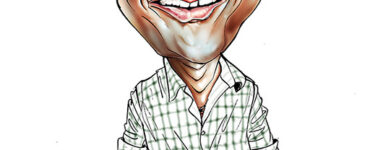
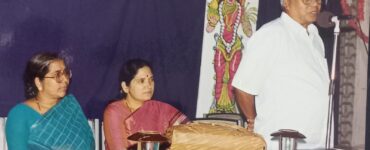

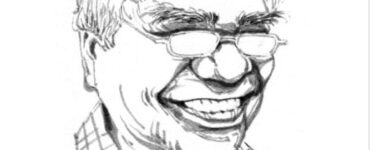
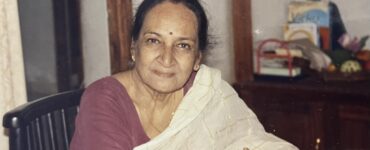

What an intriguing story! Loved reading it! The author has woven magic into the realistic narrative.
I wept through the story as the content stirred in me memories of my years in Mumbai, studying at Elphinstone College, right opposite the Prince of Wales Museum. The Lanes of Colaba Causeway and the frightful parrot story are just so close to me as I have seen this so often, over the Railway bridges or on roads. The author has captured the life of Mumbai near the Prince of Wales Museum and Colaba Causeway very well. It is what you can touch and feel. Suchita Parikh-Mundul has done fabulous work as a storyteller. Hoping to see more of her.